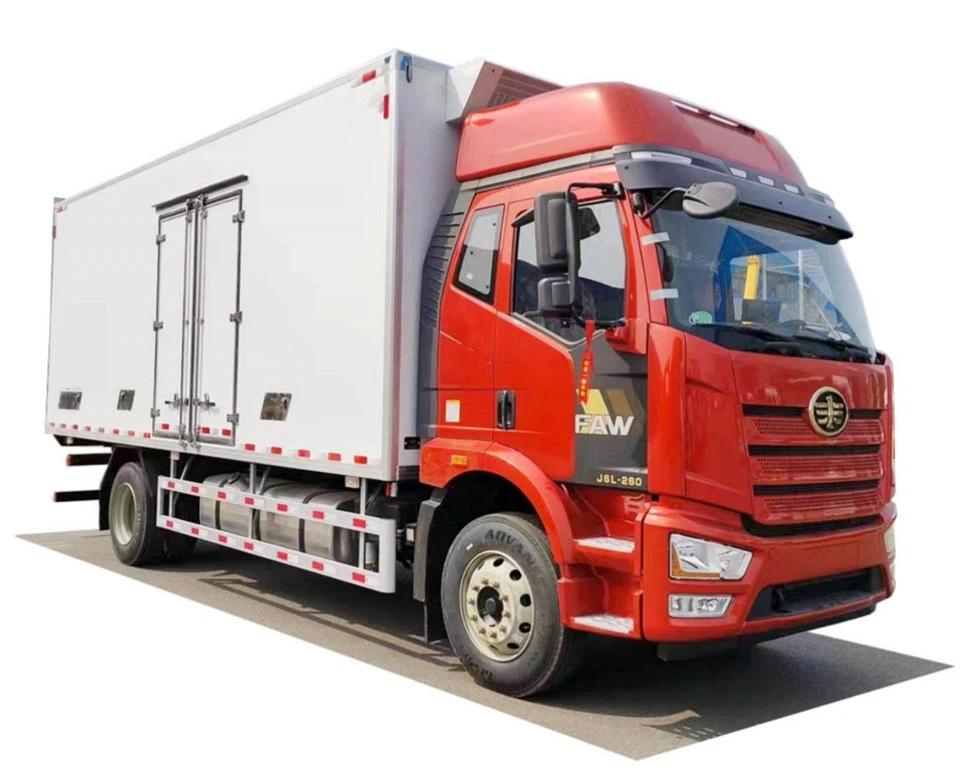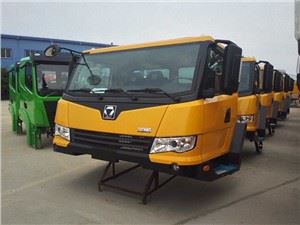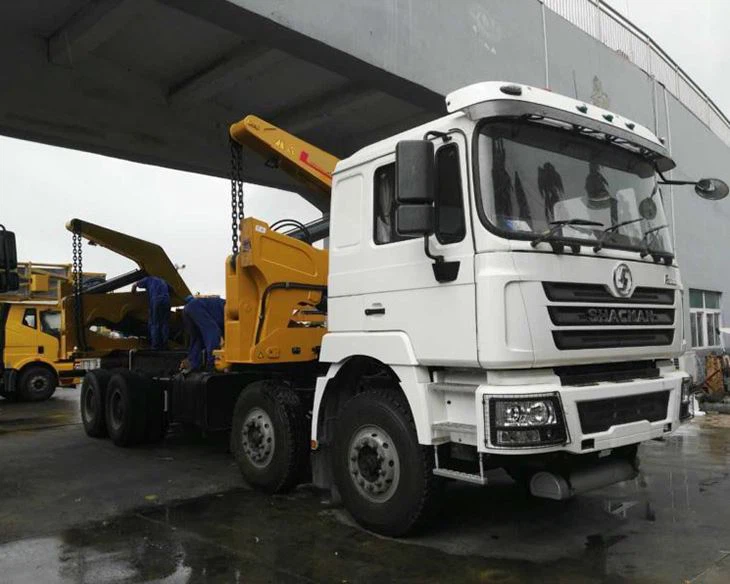Vacuum Tank Trucks for Sale: A Comprehensive Guide

When looking for reliable and efficient waste management solutions, vacuum tank trucks have become an essential part of various industries. These specialized vehicles are used to transport liquids and sludge, making them invaluable for municipalities, construction sites, septic services, and more. With a range of options available on the market, this guide will delve into everything you need to know about vacuum tank trucks for sale, providing you with a solid foundation to make informed decisions.
What are Vacuum Tank Trucks?
Vacuum tank trucks, often referred to as vacuum trucks, are heavy-duty vehicles equipped with large tank compartments and powerful vacuum pumps. They are designed to suck up, transport, and dispose of liquid waste, sludge, or hazardous materials, often from locations that are challenging to access. The versatility of vacuum tank trucks makes them suitable for various applications.
Key Components of Vacuum Tank Trucks
- Tank: The primary component that holds waste is made of materials resistant to corrosion.
- Vacuum Pump: This is the heart of the system, creating a vacuum to draw waste into the tank.
- Hoses and Fittings: Flexible hoses and robust fittings allow for easy connection to waste sources.
- Controls: Operators can manage the vacuuming process and tank operations from the driver’s seat.
- Chassis: The base of the truck can be customized according to the load requirements and operational needs.
Types of Vacuum Tank Trucks
When searching for vacuum tank trucks for sale, it’s important to understand the various types available, as they cater to different needs and industries.
1. Combination Vacuum Trucks
Combination vacuum trucks are versatile vehicles that can handle both liquid and solid waste. They typically feature both a vacuum system and a pressure washer, making them ideal for cleaning and maintaining sewer systems.
2. Septic Tank Trucks
Designed specifically for emptying septic tanks, these trucks are commonly used by sanitation companies. They are equipped with appropriate hoses and pumps tailored for effective septic waste management.
3. Industrial Vacuum Trucks
These trucks are built to handle more robust materials, including sludge, chemicals, and hazardous waste. They’re frequently used in industrial sectors for cleaning and transporting hazardous substances.
4. Hydro Excavation Trucks
Hydro excavation combines high-pressure water and vacuum technology to excavate soil while minimizing damage to underground utilities. These trucks are increasingly popular among construction and utility companies.
Factors to Consider When Buying a Vacuum Tank Truck
When exploring vacuum tank trucks for sale, various factors can impact your decision. Understanding these can help you choose the right model for your specific needs.
1. Tank Size and Capacity
Consider the volume of waste you plan to manage regularly. Tanks typically range from 500 to 5,000 gallons. Choosing the appropriate size is crucial to avoid frequent trips to disposal sites.
2. Pumping Power
The efficiency of the vacuum pump is paramount. High CFM (cubic feet per minute) and Hg (inches of mercury) ratings indicate a more powerful vacuum system, allowing for quicker operation and increased productivity.
3. Weight and Chassis
Narrowing down options based on the weight capacity and the type of chassis you need is vital. Ensure your chosen truck can handle its maximum load securely and adhere to local regulations.
4. Pump Type
Different pump types (positive displacement pumps vs. centrifugal pumps) can impact performance. Positive displacement pumps are typically better for sludge and viscous fluids, while centrifugal pumps are ideal for clear liquids.
5. Maintenance and Parts Availability
Research the available maintenance services and parts for the specific make and model you’re considering. A truck that is easier to maintain can save you time and money over its operational life.
Where to Find Vacuum Tank Trucks for Sale
Accessibility is key when searching for vacuum tank trucks. Here are some popular avenues to explore:
1. Online Marketplaces
Websites like eBay and Craigslist often list used vacuum tank trucks for sale. It’s a good idea to compare prices and specifications to get a fair deal.
2. Specialized Dealers
Look for dealerships that specialize in commercial and industrial vehicles. They often have a selection of new and used vacuum tank trucks, along with warranties and service support.
3. Industry Expos and Auctions
Attending trade shows or auctions can facilitate direct contact with manufacturers and other buyers, potentially leading to better deals and networking opportunities.
4. Manufacturer Websites
Going directly to manufacturers’ websites can provide insight into new models and buying options. Many manufacturers also list authorized dealers on their websites.
Costs Associated with Vacuum Tank Trucks

The price of vacuum tank trucks can vary widely based on various factors. Understanding these costs will help you budget effectively.
1. New vs. Used
New vacuum tank trucks can range from $100,000 to over $300,000 depending on specifications, while used models may range from $30,000 to $150,000. Always consider the depreciation value of the asset.

2. Financing Options
Many dealers and manufacturers offer financing plans. Make sure to compare interest rates and terms from different lenders to get the best possible deal.
3. Operating Costs
Besides the purchase price, consider operating costs such as fuel, insurance, maintenance, and labor. Efficient trucks may have lower operating expenses over time.
4. Tax Breaks and Incentives

Explore local and federal tax incentives or grants available for purchasing environmentally-friendly equipment. This could significantly lower your overall cost.
How to Maintain Vacuum Tank Trucks
Proper maintenance is essential to prolonging the life of your vacuum tank truck and ensuring optimal performance.
1. Regular Inspections
Conduct routine inspections of the vacuum pump, tank integrity, hoses, and fittings. Look for signs of leakage or wear and tear, which can lead to costly repairs if not addressed.
2. Cleaning Procedures
After each use, clean the tank to prevent the buildup of residue. Use high-pressure water and appropriate cleaning agents to ensure no contaminants linger in the tank.
3. Fluid Checks
Monitor and replace fluids regularly. This includes checking the oil levels in the vacuum pump and ensuring hydraulic fluid is at appropriate levels to maintain performance.
4. Documentation
Keep detailed logs of maintenance and repairs. This will help you track performance over time and may be beneficial when reselling the truck in the future.
Practical Examples of Vacuum Tank Truck Applications
Understanding how vacuum tank trucks are used can provide insight into their importance in various industries. Here are some practical examples:
1. Municipal Waste Management
City municipalities often use vacuum trucks for sewer cleaning and maintenance. They help prevent clogs and ensure city sanitation systems function effectively.
2. Construction Sites
Contractors employ vacuum trucks for hydro excavation, allowing for precise digging without damaging underground utilities. This method is efficient and reduces labor costs.
3. Environmental Services
In environmental cleanup efforts, vacuum trucks are utilized to remove hazardous waste or spills. Their ability to manage hazardous materials is crucial for safety and compliance.
4. Septic Services
Residential septic service companies rely heavily on vacuum trucks for regular pumping and disposing of septic tank waste. Reliability is key for maintaining customer satisfaction.
Frequently Asked Questions (FAQ)
1. What is the average lifespan of a vacuum tank truck?
The average lifespan of a vacuum tank truck is about 10-15 years, depending on usage, maintenance, and build quality.
2. Can I rent a vacuum tank truck instead of buying one?
Yes, many companies offer rentals for vacuum tank trucks. Renting may be a cost-effective option for short-term projects.
3. What type of training is required to operate a vacuum tank truck?
Operators typically require CDL (Commercial Driver’s License) certification along with specific training in using vacuum equipment and safety procedures.
4. Are vacuum tank trucks environmentally friendly?
Modern vacuum tank trucks are designed to minimize environmental impact, especially those equipped with advanced filtration systems that reduce emissions.
5. How do I determine the right vacuum tank truck for my needs?
Assess your specific needs according to waste type, volume, and application. Consulting with industry experts or vehicle dealers can also guide your decision.
6. What should I look for in a warranty for a vacuum tank truck?
Look for comprehensive coverage that includes the vacuum pump and chassis, with plenty of time left on the warranty period. Also, check for service history and claims process.
